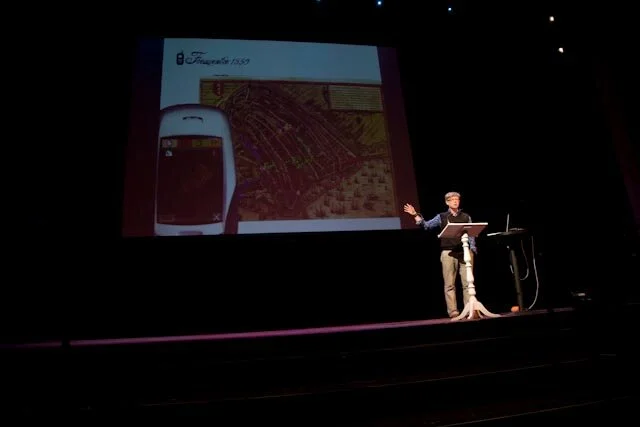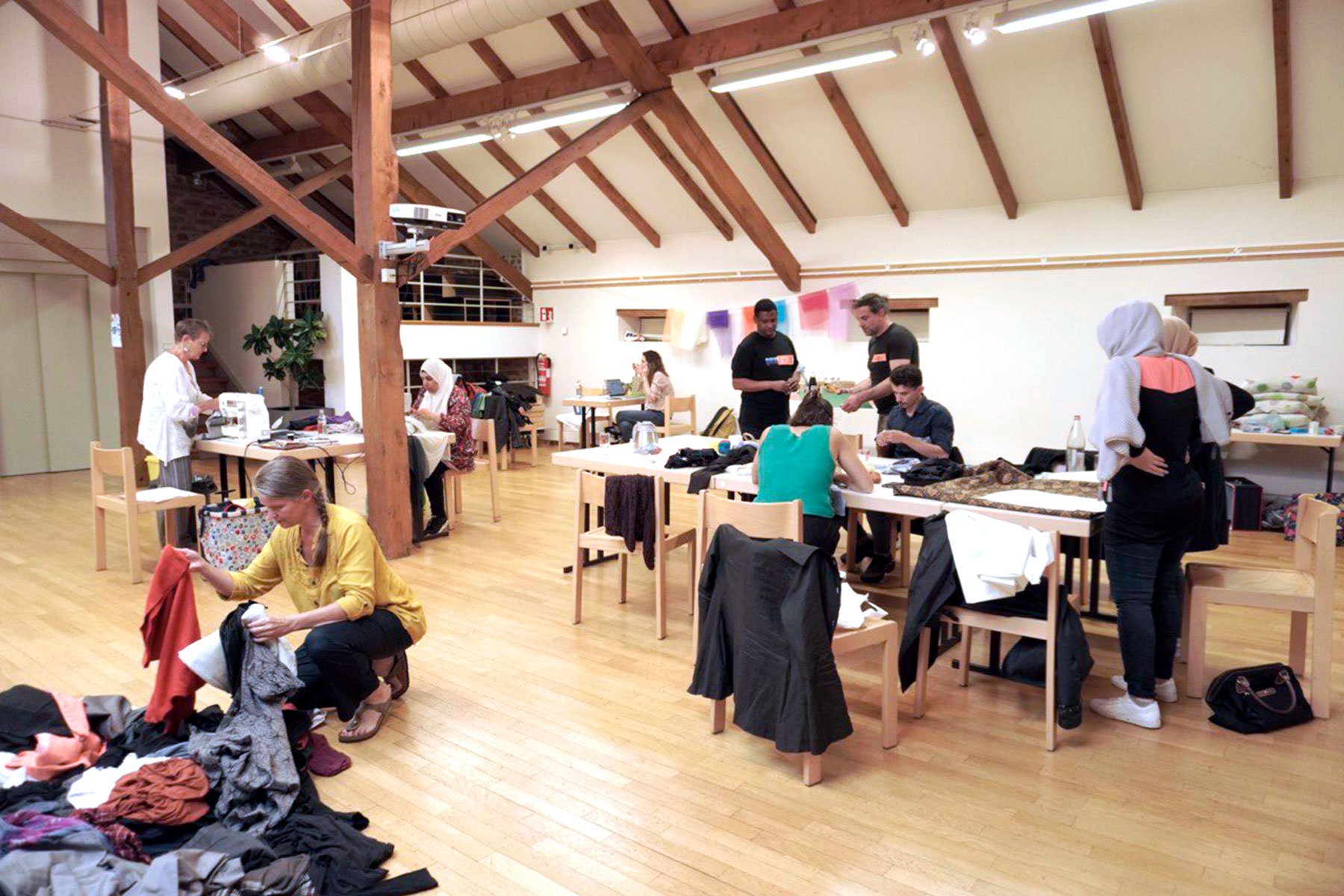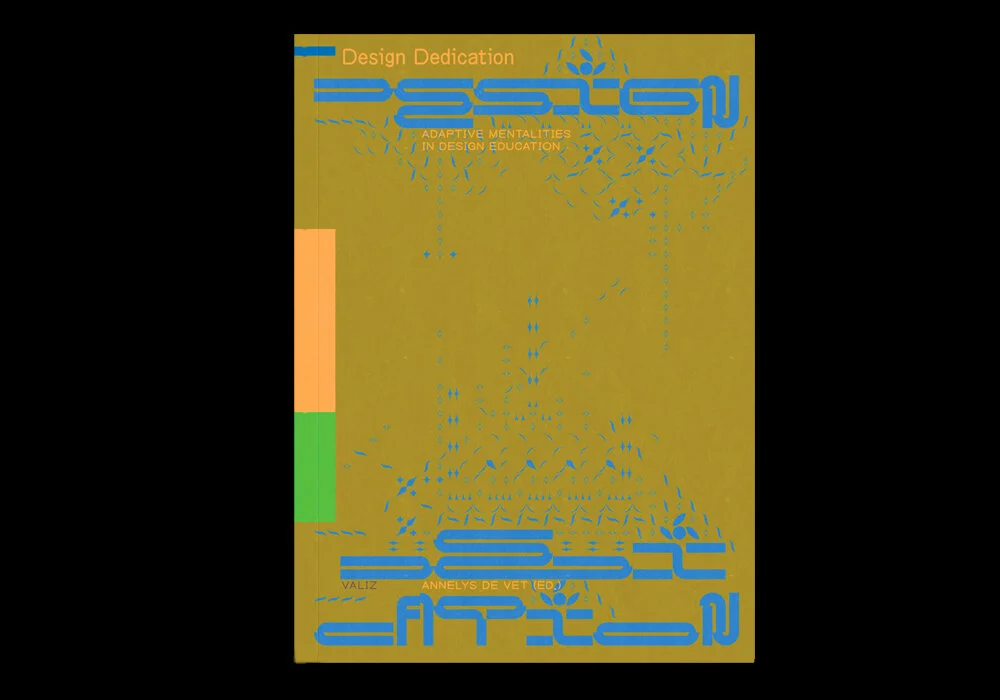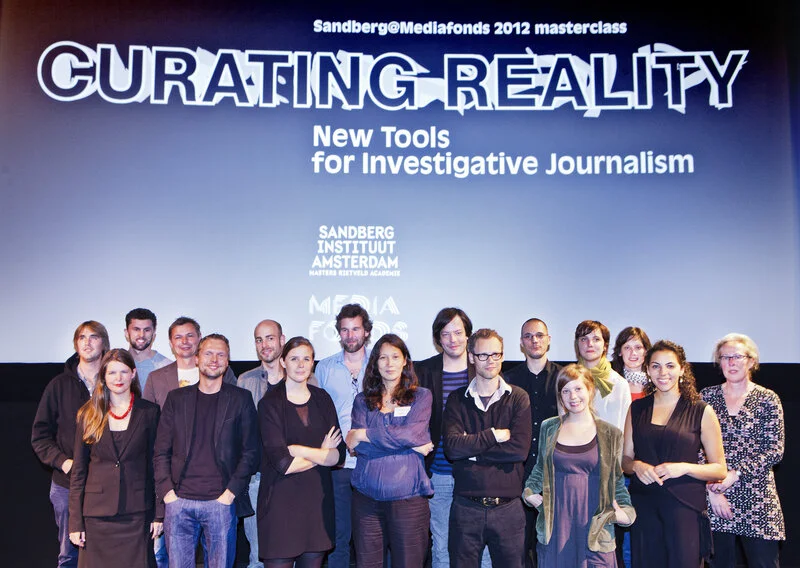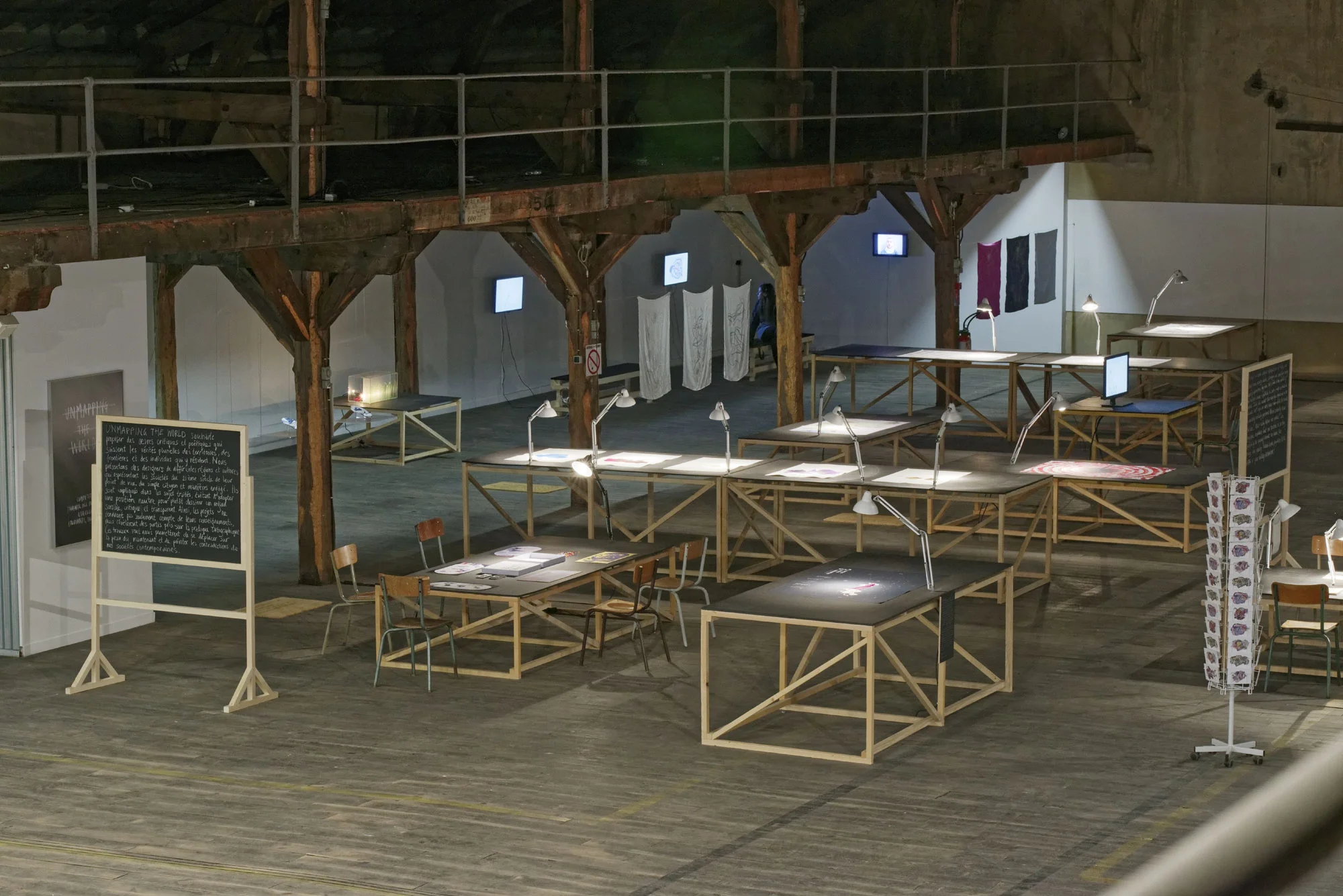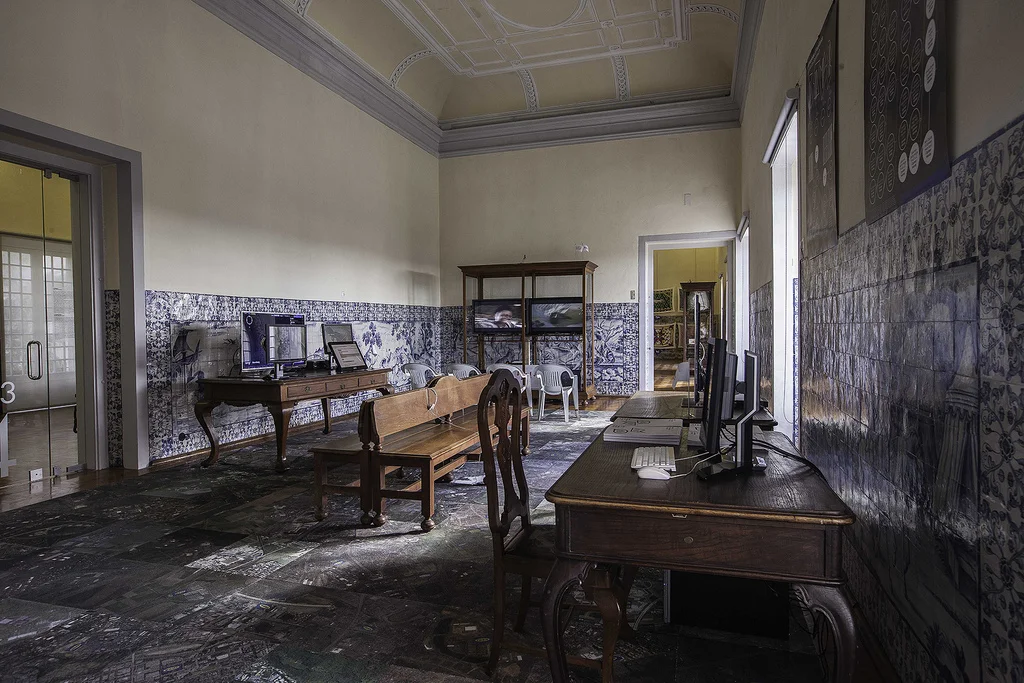Sandberg@Mediapark
masterclass digital storytelling
Annelys de Vet headed the masterclass for digital storytelling from 2010 to 2019. Every year eight anti-disciplinary teams of, among others, program makers, designers, journalists, data analysts and new media artists, worked intensively for six months on concepts for new media applications, based on a research question formulated by themselves. They were fed by inspiring speakers from home and abroad, and each year by two constructive specialists. The innovative projects resulted in a public presentation and new partnerships with media- and cultural platforms. In addition, there is collaboration with several other partner organizations from culture and media, who were all committed to talent development and innovation.
It was organized by the Sandberg Institute, the master's degree program at the Gerrit Rietveld Academy in Amsterdam, and the Netherlands Institute for Image and Sound in Hilversum. Each edition had a different, urgent, socially engaged and technological inspired theme. The Sandberg@Mediapark-masterclass was the successor of Sandberg@Mediafonds; a successful innovation-lab that was organized by the Sandberg Institute and the Dutch Mediafonds.
ARTIFICIAL IMAGINATION, 2019
masterclass digital storytelling SANDBERG@MEDIAPARK
How imagination can save our future. This edition of the masterclass focuseD on alternative future scenarios. The emphasis is on the importance of utopian imagination and speculative fiction to transcend the digital dystopias that dominate our imagination, and to sketch a future in which we actually want to live. We are looking for alternatives to biased algorithms, disproportionate revenue models and disruptive upscaling. Towards avoidances for the techno-capitalism of Silicon Valley and the Chinese data dictatorship. Towards scenarios that offer space for other values and world views and in which the future is illuminated from multiple perspectives.
TECHNOLOGY AS RELIGION, 2018
masterclass digital storytelling SANDBERG@MEDIAPARK
Our belief in technology is starting to take on religious forms. We now ask our questions about the Road, our Truth and Life to the algorithms of Google and other tech giants. With our smartphones we feed these algorithms with the most personal data, until they know us better than we do ourselves. In return, they give us all the answers, send us our love lives, absorb our sins and reward us with dopamine. Do we actually want this? The participants in the master class explored the tension between ethics and technology. For example, how can technology be used to form communities, and how are rituals part of that? If technology is religion, are designers the high priests of that religion? The social, religious and technological belief systems of the participants were also critically questioned. How explicit do they make these in their work? And what new forms can be found for this?
Guidance masterclass 2018: Anna Pedroli en Rogier Klomp. Participating makers: Merel Barends & Hasna El Maroudi , Winny de Jong & Arnoud Traa, Martijn Kieft & Leon van Oord, Reber Dosky & Klasien van de Zandschulp, Frank Bosma & Dorian de Rijk, Cyanne van den Houten & Frederique Melman, Selby Gildemacher & Dirk Vis, Jelle Klumpenaar & Janna Ullrich. Production: Charlotte Corstanje
Compilation final presentation Masterclass Sandberg@Mediapark 24 May 2018
RADICAL IMAGINATION, 2017
OPENING CONFERENCE SANDBERG@MEDIAPARK MASTERCLASS, 2017
We live in radical times. This is a tipping point - for the environment, social equality, politics and certainly for our media, imagination and technology. More and more artists, opinion makers and thinkers are calling for a new constructive radicalism, inspiring forms of collaboration, subversive art and extreme alternatives. Under the guidance of Anna Pedroli, Juha van 't Zelfde and Dimitri Nieuwenhuizen, eight anti-disciplinary teams from, among others, program makers, designers, journalists, data analysts and new media artists worked closely together. For six months they have been looking for new media applications: radical forms of moving images, interaction, design, journalism and film. The masterclass kicked of with a conference and the teams presented their innovative projects at the end of the masterclass.
Conference on new narratives and unpredictable storytelling, organized by Sandberg Instituut Design Department (Annelys de Vet) in collaboration with and at Beeld & Geluid (Hilversum).
Tereza Ruller, The Rodina: Performance Introduction
RADICAL IMAGINATION, Juha van ’t Zelfde, Curator, DJ en artistiek directeur Lighthouse Brighton UK
RADICALIZATION OF THE YOUTH, Andrea Karch, Master student Ontwerpen, Sandberg Instituut
DIPSAUS, Anousha Nzume, co-founder ‘Dipsaus’, podcast by and for women of colour and those interested in another sound
SMARTPHONE ORCHESTRA, Steye Hallema, Musician, designer and VR-specialist
PROPAGANDA BY THE PEOPLE, Rogier Klomp (Klomp TV, This is propaganda), Janneke de Rooij( Ohyescoolgreat, designer)
Final presentation masterclass ‘Radical Imagination’
The masterclass was be guided this by Dimitri Nieuwenhuizen and Anna Pedroli. The participants in the masterclass 2017 were Peter Bilak, Heleen Blanken, Abdelkarim El-Fassi, Anja Groten, Sherida Pick, Laura Hermanies, Jasper King, Hay Cranes, Elja Looijestijn, Arna Mackic, Jan Willem Petersen, Stefan Schäfer, Donna Verheijden, Martijn van der Wardt, Benedikt Wöppel and Leon Zervos.
UNMAPPING EUROPE, 2015
MASTERCLASS DIGITAL STORYTELLING SANDBERG@MEDIAFONDS
The 2015 edition of the Sandberg@Mediafonds masterclass was themed as UNMAPPING EUROPE. The Dutch presidency of the European Union in the first half of 2016 gave cause to reflect on the future of the European Union and important geopolitical issues such as the role of the state within the globalized world and the changing relationship between citizens and government. Seven teams of program makers, directors, designers, journalists, programmers and new media artists worked on projects in which they question and investigate European borders, identity, nationality and visual culture. In early June 2015, the projects were presented at a closed meeting in De Waag. The subsidized projects were presented to the public in progress during the Netherlands Film Festival.
QUANTIFIED REALITY, 2014
MASTERCLASS DIGITAL STORYTELLING SANDBERG@MEDIAFONDS
The 2014 edition of the Sandberg@Mediafonds masterclass was themed QUANTIFIED REALITY: a story between data, power and reality. The use of Big Data promises insight, overview and transparency, but also raises questions. What is left of privacy in a transparent world? Are media makers still in a position to place all that data in an independent framework, separate from political and economic interests? How can they help increase public understanding based on basic values such as tolerance, openness and humanity? These questions formed the starting point for the master class. On June 5, 2014, the teams presented their projects in the Tolhuistuin (Amsterdam).
LIQUID JOURNALISM, 2013
MASTERCLASS DIGITAL STORYTELLING SANDBERG@MEDIAFONDS
The 2013 edition of the Sandberg@Mediafonds master class was themed as LIQUID JOURNALISM, The medium and the message of non-linear narratives. In this edition, teams of program makers and designers developed a non-linear journalistic production. With the use of new research resources, the participants indicate changes in society and process them into a particularly multidisciplinary project. The masterclass was organized in collaboration with the Utrecht School of the Arts, the Association of Investigative Journalists and What Design Can Do. At the end of May 2013, the projects were presented in De Brakke Grond. Media scientist Mark Deuze gave an introduction and Marjan Hammersma, director general of Culture & Media (OCW), closed the day.
CURATING REALITY, 2012
NEW TOOLS FOR INVESTIGATIVE JOURNALISM
MASTERCLASS DIGITAL STORYTELLING SANDBERG@MEDIAFONDS
Today, we have more means than ever of gathering, interpreting and disseminating information. New forms of reporting, such as data journalism, crowdsourcing and social networks, are becomin increasingly important. Though it is often suggested that journalism is in crisis we are witnessing an explosive increase in journalistic practice and strong innovation in the field, thanks to a vast range of new possibilities.
The Sandberg@Mediafonds 2012 conference will concentrate on new forms and applications in investigative journalism resulting from technological advances. How can we use new media to better practise investigative journalism? How can we make the most of the shifting relationship between journalists and their audience, and of readers’ and viewers’ newly active role in producing and distributing stories? And how can technology be used to better keep an eye on the powerful,and to tell meaningful stories about the complex, fast-changing world we live in today?
The conference is a joint project of the design department of the Sandberg Instituut Amsterdam and the Mediafonds. It kicks off the Sandberg@Mediafonds masterclass, in which programme makers and designers collaborate on new cultural media productions that explore digital boundaries. The results will be unveiled on Thursday 7th June 2012.
WIRELESS STORIES, 2011
MASTERCLASS DIGITAL STORYTELLING SANDBERG@MEDIAFONDS
Conference, Stadsschouwburg Amsterdam, 17 February 2011
Physical space is becoming more and more filled with electronic communication and observation networks, which are invisible but no less present for that. We use mobile phones to organise our social lives, GPS to find the places we want to go, and RFID to ride on public transport, monitored by CCTV cameras all the time. Meanwhile, digital space is becoming more “physical”, with applications like Foursquare, Facebook Places and Google Maps linking social networks and data files to geographical locations. The physical world of the city and the virtual world of the Internet are overlapping more and more. This has major consequences for both the way we experience public spaces and the way we exchange news and stories.
The Sandberg@Mediafonds 2011 conference and masterclass explored the possibilities and consequences of these developments for media producers. How will the rise of locative and mobile media affect the meaning and form of the things we tell each other? Does the growing number of media applications in our streets and squares constitute a limitation of publicness, or can they actually generate new forms of it? Can we find a new kind of audience in physical outdoor space? Which other narrative forms do these media applications offer, and how can we develop valuable uses and productions for them?
FOLLOW THE MONEY, 2010
masterclass digital storytelling Sandberg@Mediafonds
At the beginning of the twenty-first century, our lives play out in a succession of databases and spreadsheets. Not only do we spend all day rummaging through countless data streams like Google and Facebook; everything we do leaves traces behind in other databases, through public transport chip cards, supermarket club cards and electronic medical files. The influence of databases, excelsheets and algorithms has never been as clearly visible as it became during the credit crisis. The crisis cast a cold light on the fact that the global financial system had been built on the basis of mathematical models that attempted to quantify human behaviour. Blinded by the beauty of impressive mathematical systems, people thought they could precisely understand the risks of investments. Meanwhile it has become clear how risky it is to be dependent on these models.
The media world, too, is paying more attention to the ever-increasing data streams. Data visualisation – a genre within visual culture that depicts data streams in provocative, poetic or insightful ways – has been booming, thanks to the growing availability of large amounts of data and the desire to grasp ever more complex realities by visual means. But is it always a good idea to assign such an important role to numerical information? How can we best interpret various data in relation to values we consider important? And which new forms of storytelling does data visualisation have to offer us? Will the data film be the new documentary form?
The Mediafonds@Sandberg conference will consider the possibilities and consequences of these developments for media producers.
Final presentation prototypes masterclass 2010, De Balie (Amsterdam), 5 May 2010.
Guidence: Martijn de Waal. Participating teams: Hannah Bonjer, Astrid Bussink, Reineke Otten, Catalogtree, Marije Meerman, Floris Douma, Victor Vroegindeweij, Corinne van Egeraat, Esther Polak, Bregtje van der Haak, Richard Vijgen, Simona Kicurovska, Liesbeth Noordergraaf-Eelens, Femke Snelting, m.m.v. Lennart Bruger, Bert Kommerij, Niels Schrader, m.m.v. Jan van Bruggen. Production: Anke van Loon







